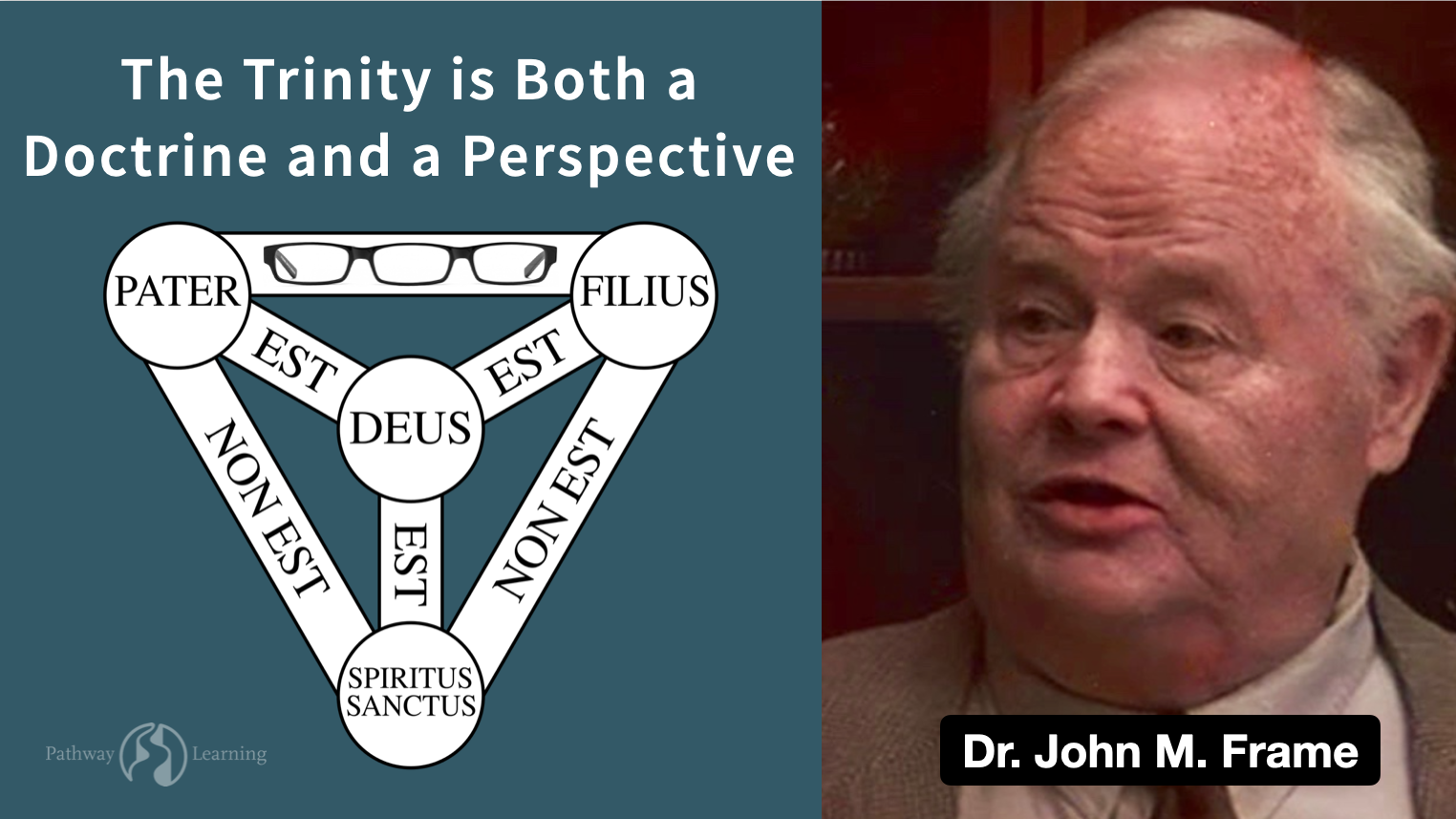The Trinitarian Foundation: Foundations in Theology Series Part 4B
Series: Foundations in Theology (Part 4B)
Authors: Drs. John M. Frame and Steven L. Childers
Title: The Trinitarian Foundation
Sound theology must be more than biblical, missional, and centered on the supremacy of God as Lord. It must also be Trinitarian because God has revealed himself in Scripture as the Triune Lord. Therefore, to know God as Lord means to know who God is (his attributes) and what God does (his acts) as Father, Son, and Holy Spirit.
So all Christian theology includes the Trinity as one of its many topics. And theologians usually teach it as a sub-category under the more major category of the doctrine of God. However, the Trinity is both a doctrine and a perspective for all other doctrines.
In the study of theology, we need a method to help us identify the topics we study and determine how to organize them into a coherent whole. In this series, instead of studying the doctrine of the Trinity only under the doctrine of God, we are learning about all the other Christian doctrines in light of the Trinity.
This is because the Bible presents all these individual, doctrinal topics as vital parts of the bigger story, the unfolding mission of the Triune Lord as Creator, Redeemer, and Restorer:[1]
God the Father establishes his will by creating all things
God the Son accomplishes his will by redeeming all things lost in the Fall
God the Spirit applies his will by restoring all things lost in the Fall
This approach connects us back to an ancient, historic method that uses the Trinity as an organizing structure for studying theology. For example, this is the model of the most famous creed of Christianity, the Apostles’ Creed (120-250 AD).
FATHER
I believe in God, the Father almighty,
Creator of heaven and earth.
SON
I believe in Jesus Christ, God's only Son, our Lord,
who was conceived by the Holy Spirit
born of the Virgin Mary,
suffered under Pontius Pilate,
was crucified, died, and was buried;
he descended into hell
On the third day he rose again;
he ascended into heaven,
he is seated at the right hand of the Father,
and he will come to judge the living and the dead.
HOLY SPIRIT[2]
I believe in the Holy Spirit,
the holy catholic Church,
the communion of saints,
the forgiveness of sins,
the resurrection of the body,
and the life everlasting. Amen.
Likewise, we find this Trinitarian method of studying Christian theology in other ancient creeds, like the Nicene Creed (325 AD) and in the writings of the church fathers of the past. Early on, the precedent for constructing theology in alignment with the Triune God’s work in redemptive history became well established.
Prominent theologians who follow this approach include Augustine (5th century), John of Damascus (8th century), Peter Lombard (12th century), Thomas Aquinas (13th century), Martin Luther (16th century), and John Calvin (16th century).[3]
Therefore, when Calvin wrote his well-known Institutes of the Christian Religion (1564), considered by many to be one of the most significant and influential Protestant Systematic Theologies, he followed the Trinitarian approach to theology in the Apostles’ Creed and titled his first three books:
Book One. The Knowledge of God the Creator (Father)[4]
Book Two. The Knowledge of God the Redeemer in Christ
Book Three. The Way in Which We Receive the Grace of Christ (Holy Spirit)[5]
Following this biblical and historical precedent, we will study theology in this series with an intentional focus on the person and work of the Triune Lord in history.
Footnotes:
[1] The biblical emphasis of the Father as Creator, the Son as Redeemer, and the Spirit as Restorer, does not deny that all members of the Trinity are involved in all aspects of creation and redemption, e.g. the Father is also Redeemer through the Son and Restorer through the Spirit.
[2] The work of the Holy Spirit is presented in the creed as the application of the Son's accomplished redemption to the Church both now and in the age to come.
[3] The model of Abelard and many Protestant Scholastics, e.g. Heidelberg Catechism and Westminster Confession, later diverted from this biblical narrative (Trinitarian) structure, creating more speculative categories, even though still using the same loci.
[4] Since the second century, Christian creeds included affirmation of belief in "God the Father Almighty" in his capacity as "Father almighty, creator of heaven and earth," as stated in the Apostles’ Creed. B. B. Warfield refers to Calvin's habit of referring to the Father as the "creator of the heavens and the earth" as due to "that distinction of properties, already stated, by which there is referred to the Father the principium agendi, so that He Himself is indeed properly said to act (agere), yet through His Word and Wisdom - yet in His Power." Benjamin Breckinridge Warfield, Calvin's Doctrine of Creation, I. xiii. 24, I. xiii.7; cf. Commentary on Heb. i.2.
[5] See Calvin’s Institutes, Book III, Chapter 1. The Things Spoken Concerning Christ Profit Us by the Secret Working of the Spirit.” “The Holy Spirit is the bond that unites us to Jesus Christ. He is the cause by which we receive the benefits that the Father bestowed upon Christ.”


